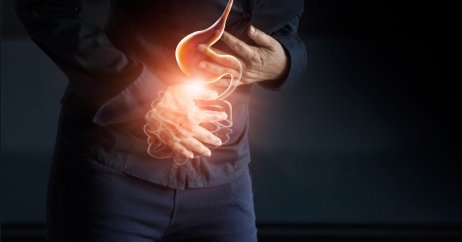Gastrointestinal Problems Continued To Haunt People Amid Coronavirus Lockdown

122 patients underwent gastrointestinal surgeries from March 22 to September 30, at Wockhardt Hospital, Mira Road: Study
Mumbai: Though Coronavirus is a matter of concern all over the world, even non-Covid ailments need an equal amount of attention. Many patients with gastrointestinal issues severe pain, perforation, obstruction, infection, jaundice, bleeding. neglected them, and landed at the hospital with complications such as infection, peritonitis, sepsis and multiorgan failure Around 122 patients had to undergo surgeries from March 22 to September 30, to get back on track and improve their quality of life. Do not take your health for granted and avoid delaying treatment, if you have any ailment.
During lockdown in India due to highly contagious Covid 19 infection, there was the immediate reaction of healthcare scarcity. People were scared, panicked, and hesitated to get timely treatment due to the fear of contracting the infection. Amid lockdown, Wockhardt Hospital continued to carry out gastrointestinal surgeries by performing all kinds of’ cancer, benign and laparoscopic surgeries. According to a study named gastrointestinal surgery in Tertiary care center during a pandemic: Single surgeon, single-center experience that was published in the Indian Journal of Surgery, along with Covid, even non-Covid ailments were bothersome during the lockdown.
Dr Imran Shaikh, consultant Surgical Gastro, and GI Oncosurgery, Wockhardt Hospital, Mira Road, said, “From March 22 To September 30, 122 patients operated with most patients were between 50 to 70 years ( 52 patients ) and 25 patients were in the 30-40 years age group. Most common symptom - severe abdominal pain. Most patients were female (69 patients), amounting to 56.5 % of the study population. Amongst all 65 were open surgeries and 57 were laparoscopic surgeries. A significant amount of emergency surgeries (57 surgeries- 46.7%) was performed. Thirty-five GI cancer cases were also operated who could not wait further.”
Dr Shaikh added, “The Hospital adhered to the Covid-19 protocol while operating on patients with gastrointestinal problems. Everyone entering the hospital premises was screened by handheld thermal guns. Only one attendant was allowed with each patient to prevent overcrowding. Hand sanitizers were placed at easily accessible spots all across the hospital. Dedicated audio/visual notices were put out at regular intervals promoting frequent hand washing, mask usage, and social distancing measures. The number of persons entering crowded places (like elevators) was limited and standing spaces marked. Sitting areas were adequately spaced to maintain social distancing. All public areas and regular contact surfaces were sanitized every hour. Outpatient departments (OPD's) were operated only on a strict appointment basis to prevent overcrowding.”
Delaying surgeries or neglecting various health issues will increase morbidity and mortality leading to poor outcomes as patients visit the hospitals when the condition is unmanageable. People are jeopardizing their own lives. Emergencies causing serious consequences can be avoided if people avail treatment.















































